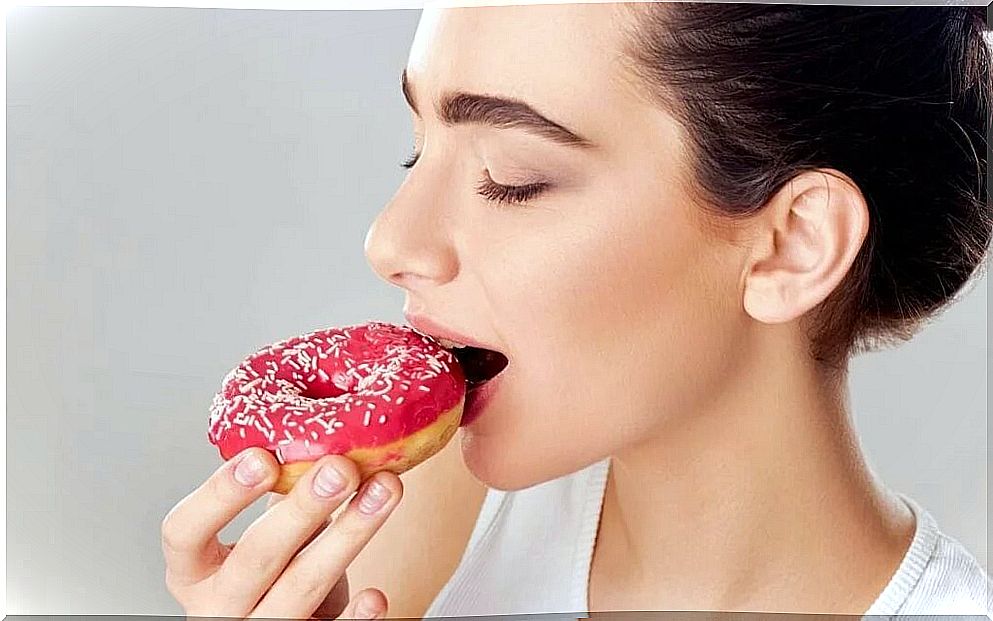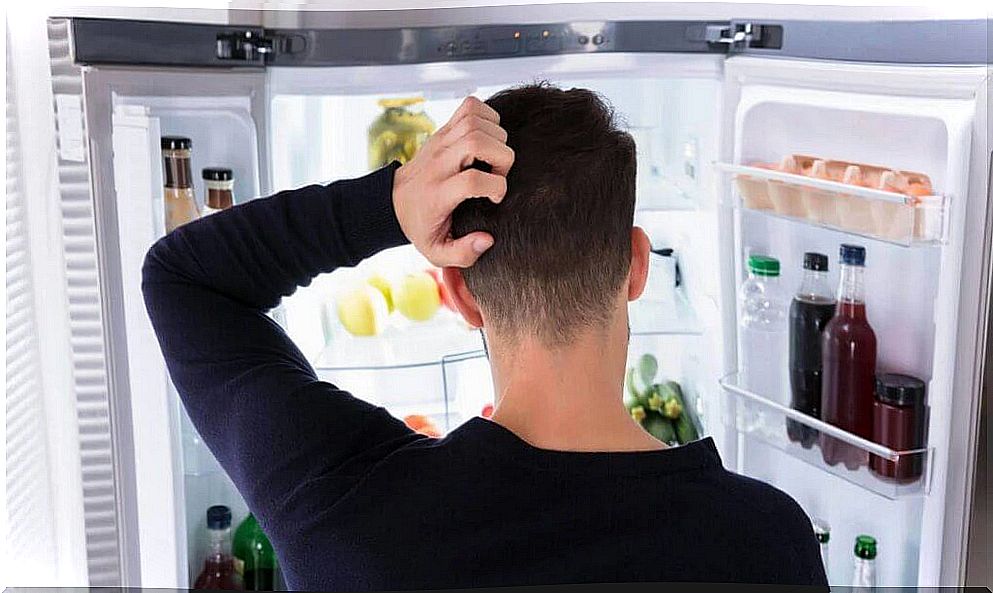Anxiety About Eating: It’s Not Hunger, It’s Your Emotions

Sadness is also edible, as is stress or frustration from that bad day at work. People are not always able to distinguish real hunger from emotional hunger, and this causes anxiety about eating to end up translating into high cholesterol, high blood pressure, overweight, or other health problems. However, in addition to these organic problems, there is another more complex challenge.
We are talking about suffering We are talking about dissatisfaction, guilt and unhappiness. It is true that there are nuances. We’ve all gone through a punctual period when the nerves made us acquire more inappropriate eating patterns. Times of testing or higher workloads sometimes lead us to reproduce these behaviors.
However, there are other realities that can go unnoticed. Eating behavior disorders often manifest in this way. After all, eating is intimately conditioned by our state of mind, and we sometimes fall into states that we find it very difficult to get out of. Emotional hunger will never ask us for a plate of vegetables.
Anxiety has a predilection for junk food. So if we don’t address what’s behind the anxiety itself, we’ll reinforce the same behavior over and over again, one in which food becomes a vehicle for emotional relief.

Eating anxiety: symptoms, causes and coping strategies
Anxiety about eating, if it becomes a constant, already reflects an eating disorder. Furthermore, most scientific studies on the subject show that anxiety disorders are, in most cases, the etiological factor of this type of eating problem.
Researches, such as the one carried out at the Department of Psychiatry at the University of Minnesota (United States), talk about this relationship. Dr. Corine Webb, author of the study, notes that most of these people, on average, have insufficient skills to deal with the emotional states that lead to compulsive hunger. Without a doubt, these are complex situations that we should know more about. Let’s look at it in more detail.
How do I know if I have anxiety about eating?
It might seem obvious. “How could I not know that I have cravings for eating?” . As surprising as it may seem, this is not always clear, as there are many people who do not know how to differentiate between real hunger and emotional hunger.
Let’s look at some characteristic features of emotional hunger.
- The need to eat something comes up suddenly and impulsively, in the form of cravings.
- Generally, these episodes of anxiety food intake are performed in solitude, with no one around.
- Basically, the brain looks for foods that produce pleasure, that provide a high dose of serotonin. This can only be produced by foods known as “junk food”, which we can eat compulsively.
- Emotional hunger is most intense when we have many obligations and pressures. For example, today we should have started that project that will be presented next week at work. Instead, though, we sat on the couch with a few packets of chips, a pizza, and an ice cream.
- This appetite is not physiological, yet it is rarely sated. We ate and ate until we felt the classic feeling of a full stomach. In reality, however, the only thing we are looking for is to heal the emptiness, end the anxiety, and trick it into something gratifying.
- However, it is necessary to keep in mind that eating out of anxiety produces feelings of guilt. We start eating to alleviate the emotional craving, but in doing so, far from feeling satisfied, discomfort arises.
- We feel bad that we haven’t been in control. We know these foods are unhealthy, and feeling like we can’t avoid them is even more frustrating.
Emotional hunger: what is the cause?
The triggers for anxiety about eating are, of course, our emotions. These mental states tend to appear orchestrated by very varied situations, but on average the following aspects are worth highlighting:
- High self-demand.
- Constant need to have everything under control. It may sound ironic, but it has its explanation: the need to have everything under our control and in order can leave us exhausted and generate a rebound effect. This exhaustion seeks an escape valve with the ingestion of “junk food”.
- Low self-esteem and seeing food as a gratifying refuge.
- Food is seen as an escape mechanism for those times of high stress or simply for a bad day.

Strategies to reduce and control anxiety about eating
To reduce anxiety about eating, we must consider one aspect. If we have been maintaining this behavior for a long time, it is a priority to consult a professional who specializes in eating disorders. Both psychologists and nutritionists are the best allies in these situations.
On the other hand, if it is something occasional, if we are aware that at certain times we reproduce these behaviors, following unhealthy eating habits, it is advisable to put the following guidelines into practice.
- Understand better what are the sources of stress and anxiety that lead to impulsive eating. Learn to face these sources, deal with them differently, and gain control over them.
- Make changes in your routine, something motivating that helps to channel anxiety: play sports, start taking dance lessons.
- Look for other types of rewards.
- Avoid eating alone.
- Plan what you are going to eat. Don’t leave room for improvisation.
- Go to the grocery store with a detailed list of healthy foods. Remember the classic advice “what you don’t put in the shopping cart won’t stay at home, so you’ll be able to avoid temptations”
- Learn to deal with your emotions, practice relaxation techniques.
In conclusion, we’ve all dealt with the emptiness of emotional hunger more than once. That hole in the stomach that food rarely fills. Those internal fissures are always the product of a mind that demands attention, of a self-esteem that must be repaired and reinforced. Be sure to consult a good professional. Your physical and psychological health is important.









